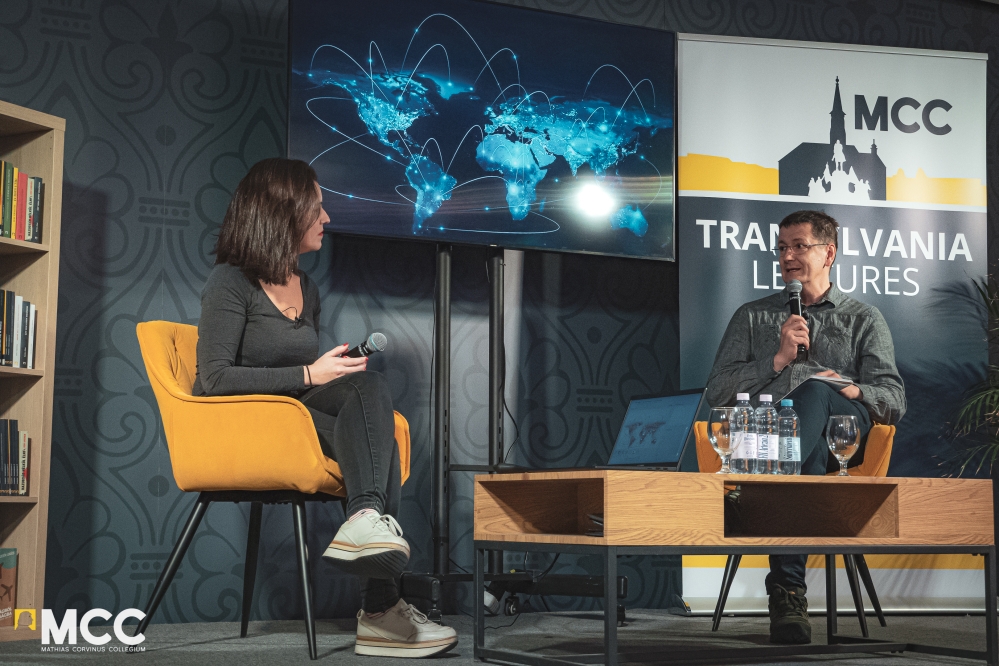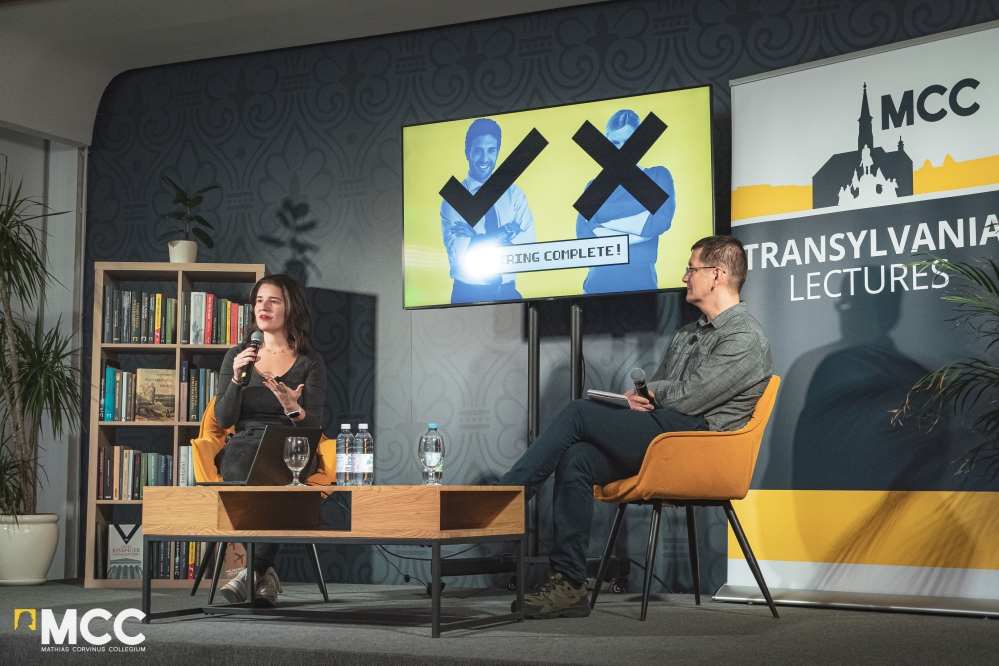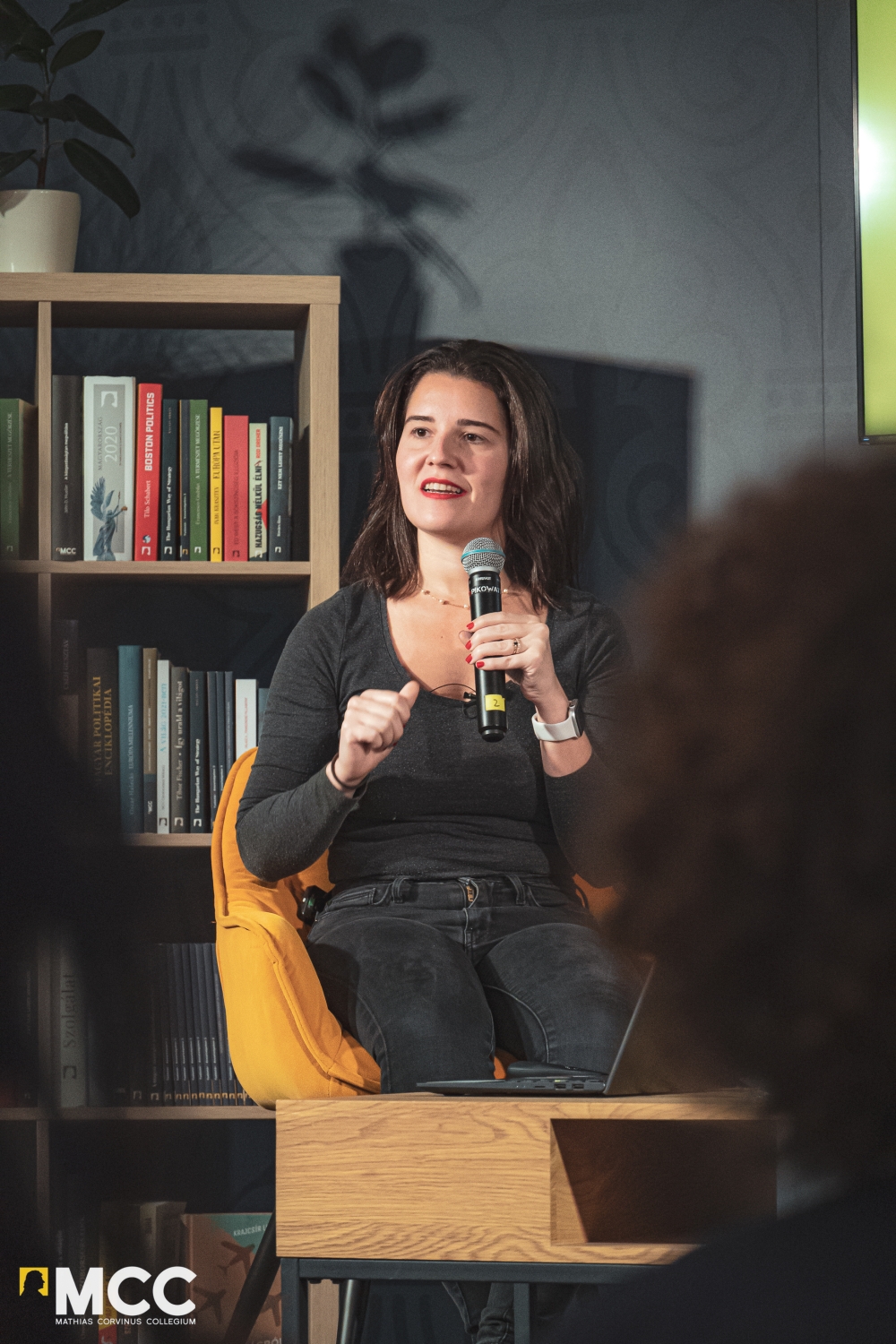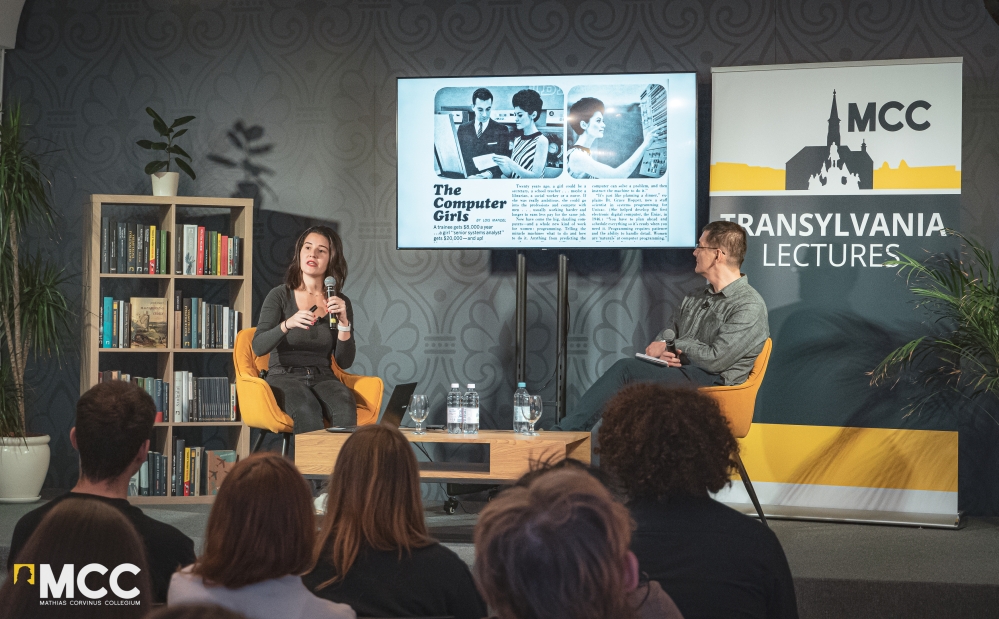Reading time: 4 minutes
What are the consequences of living in a world mainly built for men? How does AI learn our prejudices? How does gender inequality influence the dynamics of society? Karen de Sousa Pesse digital advisor and dr. Lehel Csató, professor at the Babeș–Bolyai University talked about societal issues brought on by discrimination and the potential solutions of these issues at MCC Transylvania Lectures on October 30.
Karen Pesse is a globally recognized leader in the fields of science, technology, engineering, and mathematics, and has applied her expertise at renowned companies such as Microsoft. As a female business leader in Europe, she places a particular emphasis on raising awareness about gender discrimination in the fields of technology, healthcare, and the banking sector. Her goal is to shed light on the dangers of data-driven society and the consequences of the lack of female representation. She is the founder of the social project DiversiBe, which addresses unattended social issues while creating job opportunities for women, minorities, and marginalized groups living in Belgium.
The areas of STEM are predominantly occupied by men – even though this hasn’t always been the case. In the 1950’s jobs such as computer science and maintenance of ships were considered jobs for women, since they require people with great attention to detail. Women were gradually forced out of the fast-growing technology sector: the high salaries attracted increasingly more and more men. Moreover, the higher education needed to practice these jobs was not made available for women.
According to Karen Pesse, prejudices taught to us also play a pivotal role in the development and worsening of the issue. If, as children, we are told how to behave, whether to play with Barbie dolls or with toy cars, it can have a limiting effect on our future prospects. „I wouldn’t have become an engineer, if I didn’t have a brother”, confesses Pesse, since she only had access to toys meant for boys, if she lent them from her brother.
Dealing with gender bias is crucial when we are dealing with issues in our private lives and in areas where women are under-represented. A world led exclusively by men would have negative consequences for all. The speaker brought two examples:
The safety of cars was tested on male dummies. If they wanted to calculate the effects of an accident on women, they simply put a shorter male dummy on the passenger seat. As a result, women were 73% more likely to be the victims of accidents, and 17% suffered lethal wounds.
Other than this, a study conducted by the University of Toronto on 1,3 million patients and 3000 medical doctors found that women are 32% more likely to die on the operating table, if the procedure is done by a male doctor.
Karen Pesse considers AI to be the mirror image of our society that is built on discrimination. Our data that ends up in algorithms is flawed and subjective by default. This makes it possible for chatbots to become racist, or even to encourage the user to commit suicide. The digital advisor pointed out that hidden discrimination may not be obvious at first – we would need multiple instances to notice them. Sometimes corporations notice an issue only when users have raised complaints. Pesse brought up a case, where the man and the woman in a married couple got vastly different mortgage offers. Even though they shared the same home address and bank account, the man got much more preferable offer.
Our guests lamented on how could we best achieve to make these new technologies safer and more ethical. Pesse thinks filtering is the solution: implementing improved, revised code and input of gender-independent information. Lehel Csató would put the emphasis on prevention and education. According to him, AI can be taught to logically come to the conclusion of what is right or wrong, however, the coding process could last forever, and still, some unforeseen events may occur.
They agreed on what the future holds: it’s hard to predict what’s going to happen in the next 20 years. Karen Pesse mused, that AI experts are the new philosophers of our time, since they constantly think about the future. At the same, no experts have a set in stone vision of the future, since this is a relatively new field, and as such, it goes through constant and rapid change.



